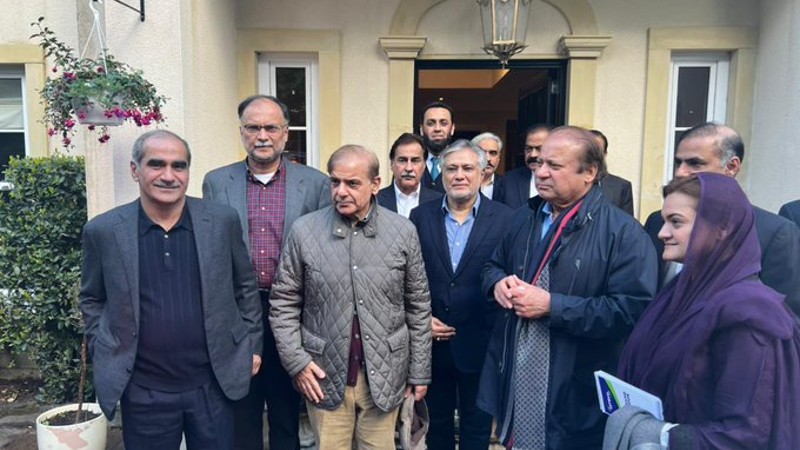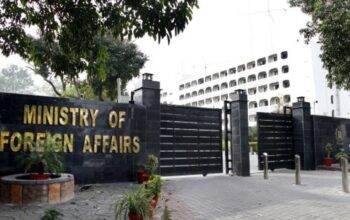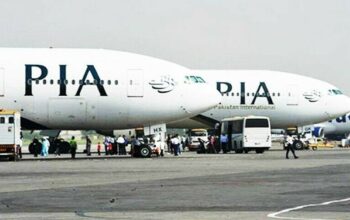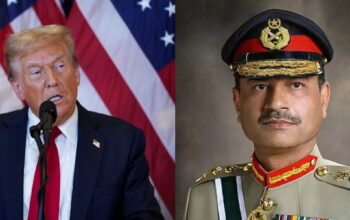Clarity is essential especially as the government is fighting multiple crises
By Staff Reporter
ISLAMABAD: Pakistan’s economic woes are complicating the situation of the country’s external obligations, owing chiefly to a lack of clarity as to who is the ultimate authority on key policy decisions confronting the economy.
It is far from certain if Finance Minister Miftah Ismail is indeed running his ministry. The widespread impression is that he is simply fronting former Finance Minister Ishaq Dar, a close confidant of Nawaz Sharif staying with him in London.
Although the stalwarts of Pakistan Muslim League – Nawaz (PML-N) are trying to dispel this impression, it continues to hold sway within official circles and even within the party ranks. “Nothing can be done without clearance from Uncle [Mr Dar]”, an official of Finance Minister told Independent Pakistan.
The House of Sharifs divided on key policy issues, which why an emergency meeting was convened at London to evolve consensus on political and economic matters. The outcome of the meeting will only become clear once PM Shehbaz Sharif returns and takes his allies into confidence.
The road ahead of the government is bumpy. Electoral reforms are high on the government agenda but the real task on its hands is placating the International Monetary Fund (IMF) for the revival of the stalled USD 6-billion Extended Fund Facility (EFF).
IMF help is indispensable for Pakistan to avert a looming balance of payments crisis. This calls for tough rather than populist decisions. Islamabad will have to reverse its fuel subsidies, resulting in hiked POL and increasing electricity prices to kick-start parleys with the Fund staff from May 18, 2022.
This, however, is not the only bitter pill for Pakistan to swallow. The government will have to align the next budget with the IMF program to secure the release the next tranche of USD 960 million under the EFF arrangement.
Running a coalition government is a difficult task at the best of times because it requires a lot of spadework to bring the myriad coalition partners on board for any policy decision just to keep political ownership of all political players. The same goes for implementation modalities once a policy decision is made.
The current situation, where the government is fighting multiple crises, makes the task doubly difficult.
In economic terms, probably the gravest short-term issue facing Pakistan is that of external balance of payments. The country’s forex reserves dwindled by USD 6 billion in the last two months, and the slide continues. As of now, foreign currency reserves held by the State Bank of Pakistan (SBP) stand at USD 10.5 billion.
Yet another challenge for the economic mangers is that the increased financing requirement to meet the massive budget deficit has increased the bargaining powers of the banking sector. The federal government will have to borrow PKR 2.5 to 3 trillion in the next two months to bridge the financing gap for current fiscal’s budget.
Having the upper hand of the bargaining, the banks are extending or rolling over financing at an exorbitant 15 percent compared to the discount rate of just over 12 percent.
If Pakistan and the IMF strike consensus in the upcoming review talks starting from May 18, it will take 4 to 6 weeks to place Islamabad’s financing request before the Fund’s Executive Board. This means that if Pakistan is lucky, the request will receive the Executive Board’s nod by the end of June 2022.
In sum, managing the country’s external account for the next few weeks promises to be a daunting task by all accounts. The Sharif government will have to get its act together in short order and devise a strategy to avert complete meltdown. [ENDS]
Copyright © 2021 Independent Pakistan | All rights reserved




